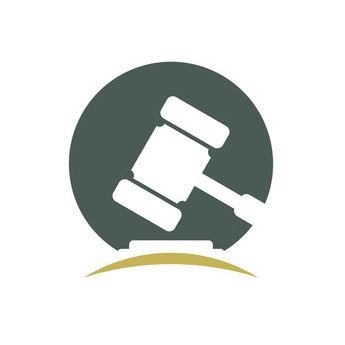Best Education Law Lawyers in Guatemala
Share your needs with us, get contacted by law firms.
Free. Takes 2 min.
Or refine your search by selecting a city:
List of the best lawyers in Guatemala
About Education Law in Guatemala
Education Law in Guatemala governs the framework, management, and regulation of educational institutions in the country. It ensures that educational standards meet national objectives, protects the rights of students and educators, and promotes equal access to quality education. The legal provisions cover various aspects, including public and private education, curriculum development, teacher qualifications, and the rights and responsibilities of students and parents. The Ministry of Education is the primary body overseeing the implementation and enforcement of education laws in Guatemala.
Why You May Need a Lawyer
Individuals may require legal assistance in Education Law for several reasons. Common situations include disputes over student rights, issues regarding special education needs, conflicts involving school administration and parents, employment matters for school staff, and legal challenges faced by educational institutions. Lawyers specializing in Education Law can help navigate these complex issues, offering advice, representation, and support to ensure fair and legal resolutions.
Local Laws Overview
Guatemala's education system is governed by a combination of constitutional mandates and statutory regulations. The Constitution guarantees the right to education, while specific laws, such as the Education Act, detail the operational standards for educational institutions. Key aspects include compulsory education, the structure of the educational curriculum, language education policies, and regulations for both public and private institutions. Additionally, Guatemala has laws that address the inclusion of students with disabilities and promote gender equality in education.
Frequently Asked Questions
What is the legal age for compulsory education in Guatemala?
The legal age range for compulsory education in Guatemala typically covers children from 7 to 14 years of age, although efforts aim to expand educational access and retention.
Are there legal provisions for special education in Guatemala?
Yes, Guatemala has laws in place to provide for the education of children with special needs, ensuring access to appropriate resources and qualified personnel.
How does one address discrimination in schools?
Discrimination complaints can be addressed through internal school channels or escalated to the education authorities or legal system if necessary, ensuring compliance with anti-discrimination laws.
What are the language policies in Guatemalan schools?
Guatemala recognizes its multicultural and multilingual population, with legal mechanisms promoting bilingual education to accommodate both Spanish and indigenous languages in schools.
Can parents choose between public and private education?
Yes, parents have the right to choose between public and private schools for their children. Private schools, however, must comply with national educational standards and regulations.
What legal rights do teachers have in Guatemala?
Teachers are protected by labor laws, which encompass employment contracts, working conditions, and their right to form and join unions for collective bargaining.
How are school curriculums regulated?
The Ministry of Education sets the national curriculum framework, ensuring consistency in educational quality and content across all schools in Guatemala.
What can be done if a student is wrongfully expelled?
Parents or guardians can appeal expulsions through the school's formal process or seek legal recourse to challenge decisions that may breach a student's rights.
Are there any legal measures supporting higher education?
Higher education institutions operate under guidelines that promote both academic freedom and regulatory compliance, with scholarships and financial aid available to support students.
How is education quality monitored in Guatemala?
Quality is monitored by the Ministry of Education through regular evaluations, inspections, and assessments to ensure schools adhere to established educational standards.
Additional Resources
Those seeking more information or support can contact the Guatemalan Ministry of Education, educational advocacy organizations, or professional legal associations. Additionally, online legal resources and databases provide valuable information on educational laws and rights in Guatemala.
Next Steps
If you require legal assistance in Education Law, consider reaching out to a qualified attorney specializing in this field. Begin by documenting your situation, gathering relevant information, and contacting local legal services or bar associations for referrals. Initial consultations can help clarify your legal standing and the best course of action. Proactive engagement with legal professionals ensures that you are well-informed and adequately represented in any proceedings.
Lawzana helps you find the best lawyers and law firms in Guatemala through a curated and pre-screened list of qualified legal professionals. Our platform offers rankings and detailed profiles of attorneys and law firms, allowing you to compare based on practice areas, including Education Law, experience, and client feedback.
Each profile includes a description of the firm's areas of practice, client reviews, team members and partners, year of establishment, spoken languages, office locations, contact information, social media presence, and any published articles or resources. Most firms on our platform speak English and are experienced in both local and international legal matters.
Get a quote from top-rated law firms in Guatemala — quickly, securely, and without unnecessary hassle.
Disclaimer:
The information provided on this page is for general informational purposes only and does not constitute legal advice. While we strive to ensure the accuracy and relevance of the content, legal information may change over time, and interpretations of the law can vary. You should always consult with a qualified legal professional for advice specific to your situation.
We disclaim all liability for actions taken or not taken based on the content of this page. If you believe any information is incorrect or outdated, please contact us, and we will review and update it where appropriate.
Browse education law law firms by city in Guatemala
Refine your search by selecting a city.












